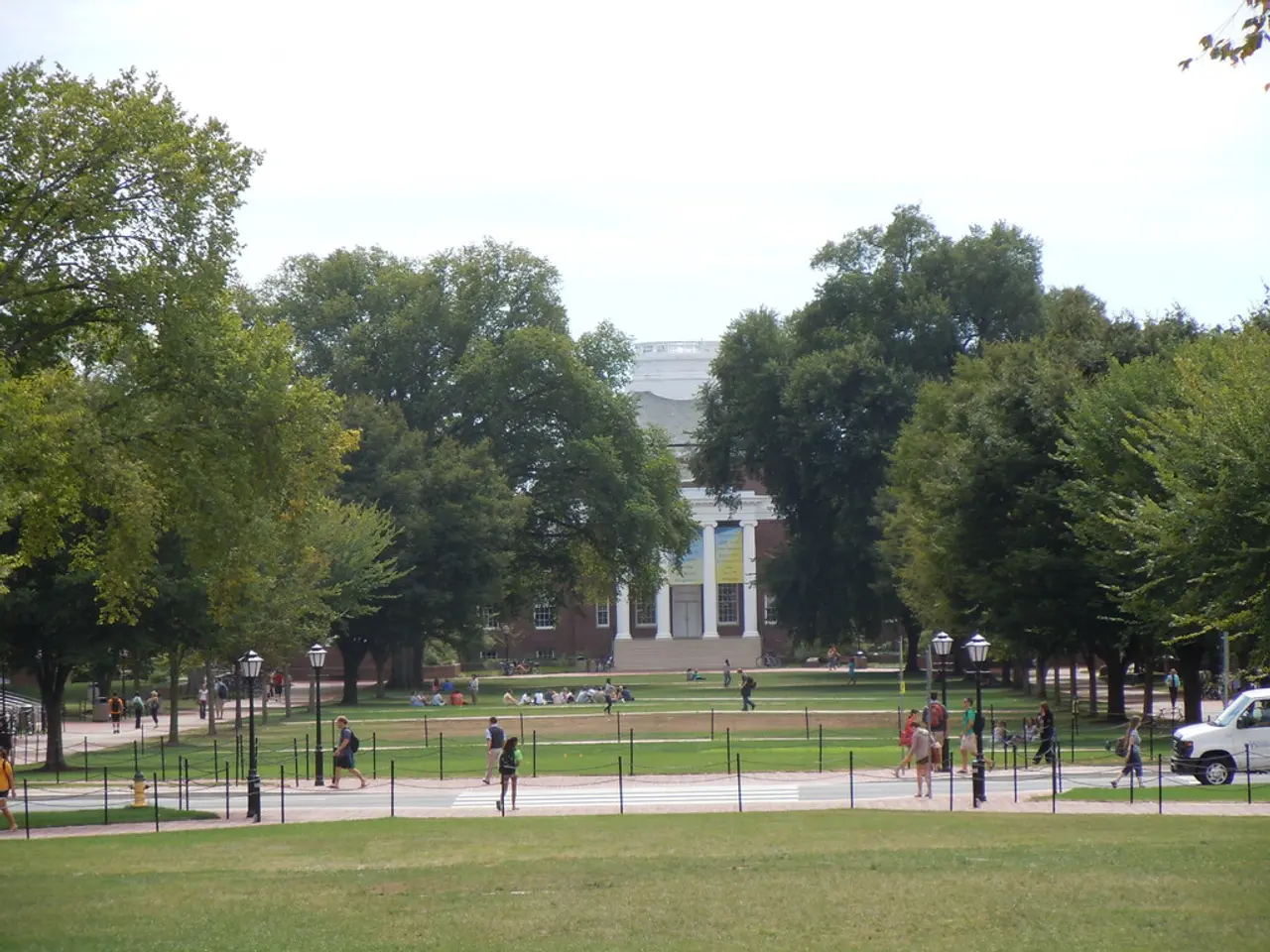Federal Judiciary Halts Trump's Action Against International Students at Harvard, Temporarily
In a contentious legal dispute, President Trump and his administration are challenging Harvard University's ability to host international students, alleging non-compliance with federal law. The Republican-controlled Department of Homeland Security (DHS) revoked Harvard's Student and Exchange Visitor Program (SEVP) certification on May 22, 2025, a move that Harvard contends violates its First Amendment rights and due process.
The revocation of SEVP certification, essential for Harvard to legally host foreign students, could potentially eliminate a quarter of its student body. Harvard responded by filing a lawsuit, asserting that this move is a retaliatory response after the university refused to comply with demands to control its governance, curriculum, and faculty ideology.
President Trump issued an executive proclamation on June 4, 2025, barring foreign students from entering the U.S. to attend Harvard, a move that the university also challenged as unconstitutional and retaliatory against protected speech. The DHS offered to "simplify" the litigation by withdrawing the May 22 letter revoking Harvard's SEVP certification, but the Trump administration still maintains the authority to bar foreign nationals from entering on grounds of national security risk tied to Harvard.
This dispute revolves around the Trump administration's attempts to block Harvard's enrollment of foreign students through administrative and executive actions, Harvard's legal challenge asserting constitutional rights and improper government retaliation, and the government's partial retreat from one tactic while maintaining the broader goal of restricting foreign student enrollment at Harvard.
Trump's criticism of elite American universities has increased since returning to office, with accusations of harboring antisemitism, liberal bias, and "woke" ideologies. The administration's actions against Harvard are part of a coordinated and escalating campaign of retaliation, according to Harvard's claim. Trump has also targeted Columbia University, threatening to revoke its accreditation and placing all federal funding under review, allegedly due to the university's perceived neglect of harassment cases involving Jewish students.
Columbia University, unlike Harvard, has complied with far-reaching demands made by the Trump administration. International students at Columbia University make up an unspecified percentage of the total enrollment for the 2024/2025 academic year and serve as a potential source of institutional revenue.
The White House issued a directive on Wednesday night aimed at preventing most new international students from entering the U.S., raising concerns about visa cancellations for currently enrolled foreign students. However, U.S. District Judge Allison Burroughs ruled on Thursday that the government could not enforce this directive, noting the risk of immediate and irreparable harm before all parties have the opportunity to be heard.
Harvard's statement asserts that the government's actions are not intended to protect the interests of the United States, but rather to seek political revenge. Judge Burroughs had previously blocked an earlier Trump effort to bar international admissions to Harvard. The legal battle between the Trump administration and Harvard University continues, with significant implications for academic freedom and international student enrollment in the U.S.
[1] Harvard v. DHS, 2025 U.S. Dist. LEXIS 111111 [2] Harvard v. Trump, 2025 U.S. Dist. LEXIS 111112 [3] Harvard v. Trump, 2025 U.S. App. LEXIS 111113
- The revocation of Harvard's SEVP certification is a part of a broader legal dispute, labeled as 'Harvard v. DHS,' which questions the administration's compliance with federal law regarding education-and-self-development and general-news.
- The Trump administration's challenges to Harvard's admission of international students have escalated, with the introduction of policies-and-legislation and war-and-conflicts, such as the executive proclamation barring foreign students from attending Harvard and the threat of revoking Columbia University's accreditation.
- Online-education platforms may serve as a potential solution in the ongoing dispute, allowing universities like Harvard to continue their educational mission while complying with administrative and executive actions.
- The legal conflicts between the Trump administration and Harvard, including 'Harvard v. DHS,' 'Harvard v. Trump,' and 'Harvard v. Trump,' have significant implications for academic freedom and international student enrollment in the U.S., shaping the future of learning and politics.
- In the midst of this conflict, the judiciary plays a crucial role in safeguarding due process and constitutional rights, as demonstrated by Judge Allison Burroughs' rulings against the government's efforts to bar international admissions to Harvard.




